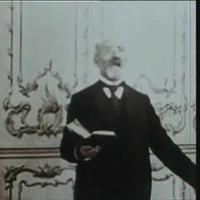Eviti akĉenton
Lastatempe pli kaj pli da E-parolantoj ŝatas aŭdigi sian voĉon en la interreto, ĉu en Jutubo, ĉu per podkasto. Ĉar la interreto portas mesaĝon al la tuta mondo, la tiucele uzata lingvaĵo devas ankaŭ esti komprenebla por E-aŭskultantoj en la tuta mondo. La parolanto do devas prononci vortojn kaj frazojn laŭ la prononcreguloj de Esperanto.
Tiuj reguloj lasas al la parolanto ja certan liberecon, sed tro vasta uzo de tiuj liberecoj limigas la kompreneblecon aŭ kaŭzas necertecon. Kaj la prononcreguloj ankaŭ estas facile lerneblaj, sed por lerni ilin kompreneble ne sufiĉas legi la regulojn, sed necesas aŭdi ekzemplojn de ĝusta kaj bona prononco.
En Esperanto ĉiu sono de la lingvo estas reprezentata de certa litero. Do ekzemple la kvin vokaloj de Esperanto (...) estas skribataj per la kvin literoj a, e, i, o, u. Do tiuj literoj ricevas por la uzo en Esperanto certan valoron. Literoj tamen en aliaj lingvoj povas havi aliajn valorojn kaj tio en parolado en Esperanto povas konduki al prononco de specifa litero laŭ valoro de la propra lingvo.
Ekzemple la esperanta vokalo "e" en la buŝo de germanlingvano povas en akcentata silabo fariĝi malvasta "..." aŭ en neakcentata silabo ŝvasona "...". Do se germanlingvanoj parolas E-on povas okazi ke la aŭskultanto aŭdas tri variantojn de la prononco de la vokalo "e". Simile povas okazi ĉe aliaj vokaloj. En E-o ekzemple ekzistas nur unu formo de la prononco de la vokalo "i". Sed germanparolanto prononcas ĝin ankaŭ "y". Kaj se du vokaloj kuntuŝiĝas en unu vorto, ekzemple en "fuelo", germanparolanto eble diras "fu'elo", do faras glotan paŭzon inter la vokaloj. Mi povus ankoraŭ citi pluajn ekzemplojn de misprononcoj pro la sinapogo al la prononco de la propra lingvo. Ne nur temas pri vokaloj, sed ankaŭ pri konsonantoj. Bona ekzemplo estas la konsonanto "r". Plej bone estas prononci ĝin per la langopinto por ĉiam klare aŭdigi ĝin.
Alia prononcregulo koncernas la akcenton en Esperanto: Ĝi kuŝas ĉiam sur la antaŭlasta silabo de vorto. Se la vorto plilongiĝas, la akcento migras malantaŭen: malsana, malsanulo, malsanulejo. Ĉe kunmetitaj vortoj kun du substantivoj, ekz. "dompordo", ĉe germanparolanto la akcento povas migri al la unua vorto, ĉar tio ja korespondus al la logiko de la germana lingvo, sed tio ne korespondas al la logiko de Esperanto. Ĉiuj tiuj prononcproblemoj apartenas al la nocio "akĉento". Do oni povas paroli Esperanton kun aŭ germana, aŭ franca, aŭ ekzemple rusa akĉento. Tiuj akĉentoj estas evitendaj. Ĉiu esperantisto kiu volas aŭdigi sian voĉon en la interreto por esti aŭdata en la tuta mondo, devas atenti tion. Aliflanke la lingva fono de parolanto ja povas aŭdiĝi en la parolmelodio, la kadenco. Kadencoj povas senfine varii. Per la kadenco oni povas bone montri sian lingvan devenon. Kaj tio igas lingvaĵon belsona kaj plaĉa.
Do aŭskultu laŭeble multajn ekzemplojn de prononco kaj komparu tiujn prononcojn kun via prononco de Esperanto. Rilate al la Esperanta Retradio aŭskultu la koncernan sondosieron post legado de la teksto por kompreni ĝin sen samtempa legado kaj por povi koncentriĝi pri la sonbildo kiun la sondosiero liveras. Prenu frazojn kiujn vi aŭdas kaj ripetu ilin atentante pri via prononco. Tiam vi paŝon post paŝo povos perdi evitendan akĉenton.

